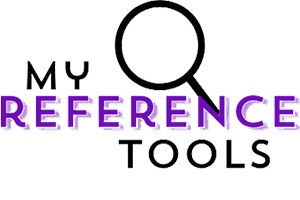Lifelong Learning Platforms Empowering the Modern Professional

Staying competitive and fulfilled in today’s workforce demands more than foundational education or industry know-how. The workplace evolves rapidly, with new technologies, regulations, and demands emerging throughout every sector. Professionals need to continuously build new skills, refresh their expertise, and adapt their perspectives to keep pace. This is where lifelong learning platforms step in, transforming how professionals acquire knowledge and remain adaptable in their careers.
This article explores the essentials of lifelong learning for professionals, features key platforms, and offers strategy guidance for choosing and utilizing these tools effectively.
Understanding Lifelong Learning for Professionals
Lifelong learning refers to the ongoing, self-motivated pursuit of knowledge for personal and professional growth. For professionals, it’s more than an aspiration; it’s a necessity. The rise of artificial intelligence, automation, hybrid work cultures, and evolving client expectations means yesterday’s skills are rarely sufficient for tomorrow’s tasks.
Key reasons why lifelong learning matters:
- Adaptability: New challenges require fresh skills, whether in leadership, data analysis, or technical fields.
- Career Mobility: Continual learning helps individuals transition to new roles, industries, or responsibilities.
- Innovation: Exposure to diverse subjects sparks creativity and fosters innovative problem-solving.
- Job Satisfaction: Opportunities to learn and grow contribute to deeper engagement and a sense of purpose at work.
What Makes a Lifelong Learning Platform?
Lifelong learning platforms are online ecosystems designed to deliver learning at scale, across a broad spectrum of topics. These platforms combine technology with curated educational content, allowing professionals to choose their learning path, set their pace, and track their progress. Distinguishing features often include:
- Wide course catalogs: Covering diverse subjects like technology, management, creativity, and soft skills.
- Flexible formats: Self-paced videos, live sessions, interactive labs, projects, and quizzes.
- Microlearning: Short, focused modules for busy professionals.
- Certification: Digital badges or certificates to showcase skills on resumes or LinkedIn.
- Community and support: Peer interaction, discussion forums, and access to industry experts.
Leading Lifelong Learning Platforms
With the e-learning sector booming, professionals enjoy a wide array of lifelong learning platforms that cater to every need and interest. Here are some of the most influential tools shaping the ongoing education landscape:
1. LinkedIn Learning
Previously known as Lynda.com, LinkedIn Learning is seamlessly integrated with the world’s largest professional network. It offers thousands of courses covering leadership, software development, data analytics, communication skills, and more. Recommendations are tailored based on your job title, career aspirations, and trending industry skills.
Standout features:
- Certificates can be shared directly to your LinkedIn profile
- Bite-sized learning for skill-building in a fraction of your lunch break
- Learning Paths help guide progress through complex topics
2. Coursera
Coursera partners with top universities (such as Stanford, Yale, and the University of London) and leading companies to provide high-quality courses, professional certificates, and even full degrees online. Its curriculum covers everything from machine learning to project management, with courses taught by recognized academics and industry leaders.
Standout features:
- Accredited certificate programs and multi-course specializations
- Flexibility to audit many courses free or pursue formal credit for a fee
- Active peer forums for engaging discussions
3. edX
Founded by Harvard and MIT, edX offers access to university-level courses in fields like IT, business, languages, and sciences. Professionals can learn at their own pace, pursue micro-credentials (such as MicroMasters), or enroll in fully online master’s programs.
Standout features:
- University-backed courses and formal credentials
- User-friendly interface and self-paced options
- Affordable alternatives to traditional degree programs
4. Udemy
Udemy democratizes learning by letting skilled instructors create their own courses in virtually any subject. With more than 200,000 courses, professionals can find classes on everything from Excel basics and web development to mindfulness and creative writing.
Standout features:
- Huge course variety, including highly niche topics
- Frequent discounts and affordable special offers
- Self-paced lessons and mobile access
5. Pluralsight
Ideal for professionals in technology and creative industries, Pluralsight delivers robust learning paths in software development, cloud computing, cybersecurity, IT operations, and design. Its expert-driven courses often align with in-demand industry certifications.
Standout features:
- Skill assessments and personalized learning recommendations
- Hands-on labs for applied learning
- Role IQs benchmark skills for company or personal objectives
6. Skillshare
Skillshare focuses on creative skills, entrepreneurship, and technology. Its vibrant instructor community helps professionals stretch creative thinking while mastering practical tools like Photoshop, business storytelling, or UX design.
Standout features:
- Project-based learning to build real portfolios
- Active creative community for collaboration and inspiration
- Short, engaging lesson styles
7. MasterClass
MasterClass takes a unique approach, offering courses taught by world-renowned experts like Gordon Ramsay, Shonda Rhimes, or Neil deGrasse Tyson. Topics range from cooking and negotiation to leadership and science communication. The platform’s high-quality production and real-world insights create a compelling, inspirational learning environment.
Standout features:
- Celebrity instructors with first-hand experience
- Cinematic lesson quality that makes learning a pleasure
- Focus on actionable advice and life lessons
Integrating Lifelong Learning into Your Career Strategy
Merely signing up for a platform isn’t enough; the key lies in integrating ongoing learning into your professional life. Here’s how to make learning a career-long habit:
Assess Your Development Needs
Begin by identifying knowledge gaps and growth opportunities relevant to your career goals. Consider feedback from managers, peers, or performance reviews, and keep an eye on emerging trends in your industry.
Set Learning Goals
Set specific, attainable learning objectives. Instead of a vague goal like “get better at data analysis,” aim for “complete an intermediate Excel course by the end of this quarter and apply three new techniques to my monthly reporting.”
Curate Your Learning Path
Instead of trying to study everything at once, select courses or certifications that align with your short- and long-term career plans. Prioritize high-impact skills first, such as digital literacy, leadership, or industry-specific tools.
Make Time for Learning
Block out regular time on your calendar for learning, even if just 20 minutes a few times per week. Microlearning modules are perfect for busy schedules and help maintain momentum over the long term.
Apply and Share Knowledge
Put your new skills into action right away. Suggest process improvements, take on stretch projects, or volunteer to lead new initiatives. Sharing insights with your team not only reinforces your own learning but also positions you as a leader in professional development.
Track Progress and Reflect
Use platform dashboards to monitor your progress. Reflect regularly on what you’ve learned, update your resume or LinkedIn profile, and seek feedback on any new techniques or approaches you bring to the workplace.
Overcoming Barriers to Lifelong Learning
Several challenges can get in the way of lifelong learning, but with the right strategies, you can minimize them:
- Time constraints: Opt for micro-courses and set realistic learning blocks.
- Financial limitations: Explore free course options, scholarships, or employer-sponsored programs.
- Lack of motivation: Join learning communities, take on collaborative projects, or mentor others to stay inspired.
- Information overload: Limit course enrollments and focus on one learning goal at a time.
The Future of Lifelong Learning
Lifelong learning is not just a trend; it’s the new professional paradigm. Emerging innovations like artificial intelligence, adaptive learning algorithms, and immersive experiences (like AR and VR) will further personalize the learning process for professionals. The platforms of tomorrow will anticipate your needs, offer just-in-time resources, and help you turn learning into measurable results faster than ever.
Forward-thinking organizations recognize the value of professional learning. Many provide platform subscriptions, internal training hubs, or budgets specifically for skills development. Professionals who engage proactively with lifelong learning platforms will position themselves for career advancement, adaptability, and greater job satisfaction.
Final Thoughts
Lifelong learning platforms have revolutionized how professionals learn, collaborate, and grow. Whether you’re seeking new skills for personal fulfillment, a competitive edge, or to future-proof your career, these platforms offer the flexibility and depth needed in a rapidly changing world. By setting clear goals, engaging consistently, and applying what you learn, you’ll unlock both immediate and long-term success on your professional path.
Keep learning, keep growing, and make every stage of your career an opportunity for reinvention.



